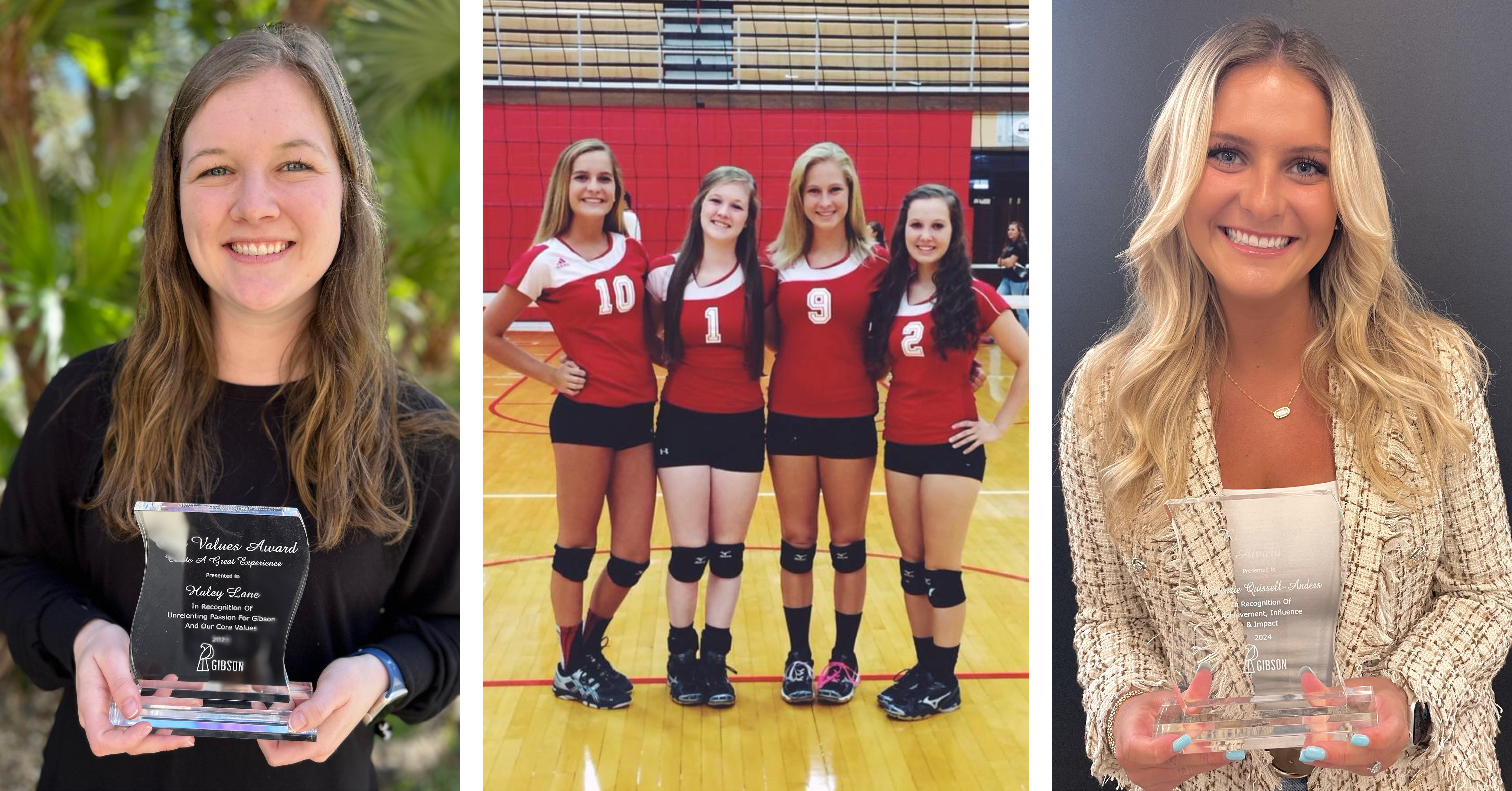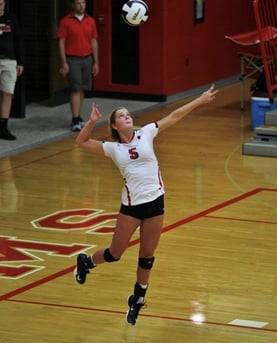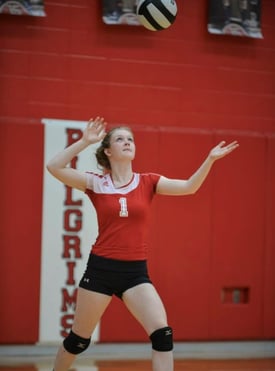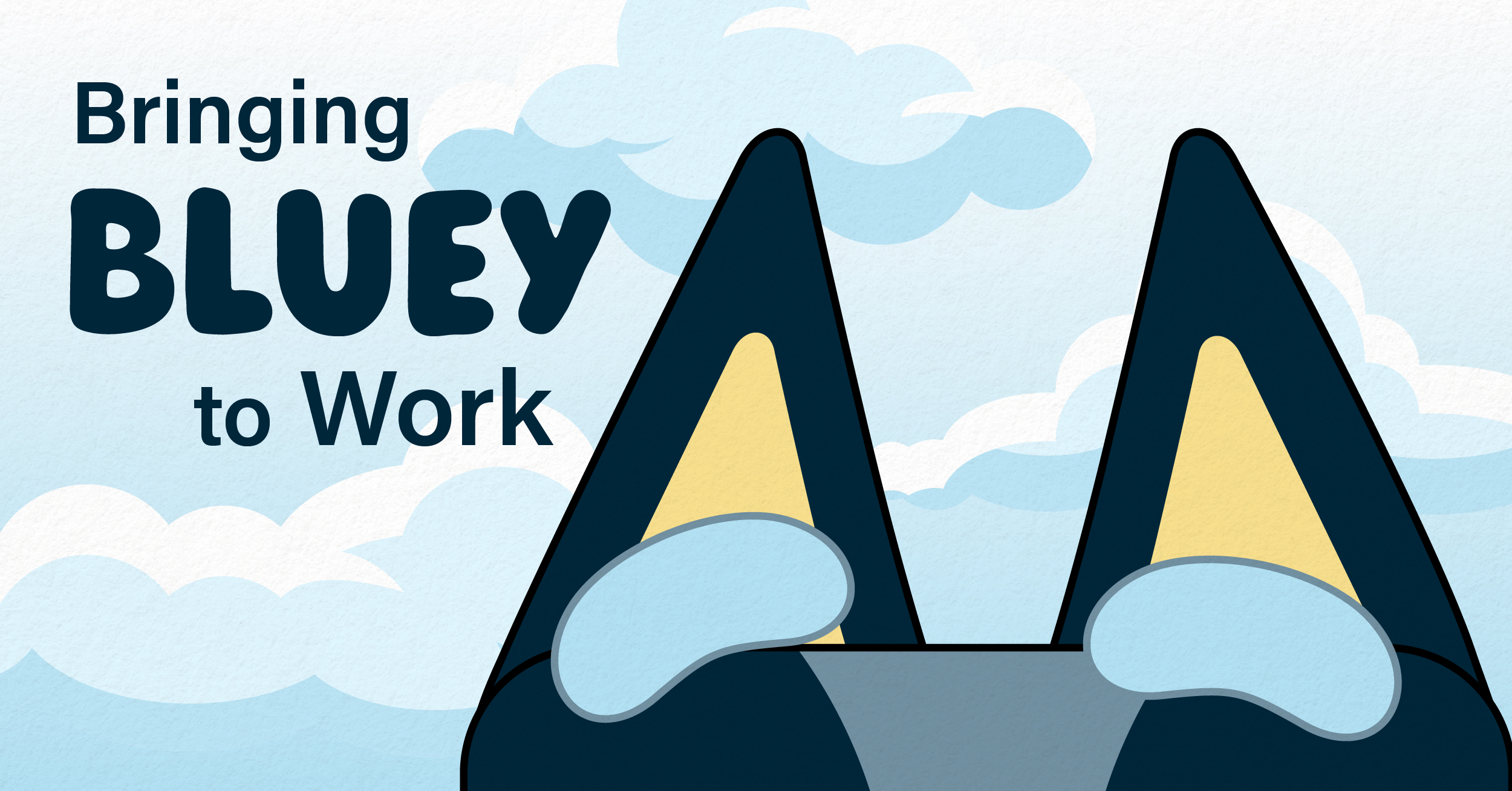
Today’s blog is coauthored by Gibson’s Haley Lane and Kenzie Anders, both of whom grew up in the town of Plymouth, Indiana, where the Gibson roots first began back in 1933. You might say they are true homegrown Gibson employees.
Kenzie and I, now colleagues at Gibson, were once high school volleyball teammates. I was the team captain and setter my senior year and Kenzie was the starting middle hitter as a freshman. We spent many afternoons, evenings, and weekends together in the gym.
The lessons taught by sports have translated into lessons for life. The parallels are obvious—success in both sports and business require teamwork, effort, diligence, perseverance, cooperation, and the list goes on and on. As young teammates on the court, and now young teammates in the insurance industry, the knowledge obtained from the hardwood continues to apply.
Here is a look at the four lessons we’ve taken from the court to the cubicle over the last decade.
People Skills
Whether it be in the office or in the huddle, people skills are essential for building strong relationships, fostering teamwork, and achieving success. Two aspects of having good people skills are empathy and conflict resolution. Like teammates encouraging and motivating one another, empathetic employees understand the needs and feelings of their colleagues and look for ways to encourage and empower them. In a team setting, conflict is bound to arise, but those with a strong understanding of the people they are working with can address such conflicts respectfully, listen compassionately to different perspectives, and find practical solutions. For the betterment of the organization—whether it be a sports team or your group of colleagues—a deep understanding of how to cooperate and work with others will lead to achievement. 
Time Management
Haley and I were both three-sport, high school athletes, which meant that mastering time management had to become second nature. Juggling practices, games, schoolwork, and personal commitments taught us the value of being organized and the importance of prioritization. These experiences as teenagers have translated to the workplace, where deadlines, meetings, and projects demand efficient time allocation. Additionally, as student athletes, we developed the ability to balance multiple responsibilities, stay focused under pressure, and adapt to changing priorities, all of which prepared us for success in the professional setting.
Fighting Adversity
As an athlete, you regularly face adversity. You may be down several points, have a long stretch of playing defense, lose a key player to an injury, or be the undoubted underdog before the game even begins. Similarly in the workplace, you may walk into the office on Monday after a tough weekend at home feeling defeated before you even begin. Maybe you just lost a big account, or perhaps you received your fourth underwriter declination on a renewal. Regardless of what the situation is, it takes fighting against negative thoughts, doubts, and disappointment to come out on top. True star players find a way to put the fear of defeat behind them and clear a pathway to success.
Desire to Win 
Great athletes know what it takes to win, and they put in the time and effort to prepare themselves to be successful. Attending a two-hour practice five days a week is the minimum effort required by a high school athlete. Top performers, however, set themselves apart by preparing their bodies through what they eat, committing hours outside of practice to improving their game, and watching film before a big match. In the workplace, top-talent employees do the same. They find ways to go above and beyond for clients, bring positive energy and enthusiasm to meetings, and are the first to raise their hands to take on a new challenge. Star players don’t sit back and see how things play out; instead, they seize a moment of opportunity and turn it into a victory.
Anyone who has played on a sports team would attest that the lessons taught on the court (or field) directly correlate to the experiences we have in the workplace.
Ten years after our time together on the Plymouth High School volleyball court, Haley and I have a new opportunity to exercise friendly, healthy competition in an effort to be the best employee owners, teammates, and leaders. We are seeking to achieve success by making Gibson one of the best places to work by championing company culture, balancing multiple workloads, fighting through the adversity of challenging workdays, and competing to deliver best-in-class service to our clients.
The lessons learned from athletics don’t end when the buzzer sounds, the whistle blows, or the final ball hits the floor. They’re designed to carry over to the rest of your life outside of the uniform, and specifically to the workplace you choose to invest in.



